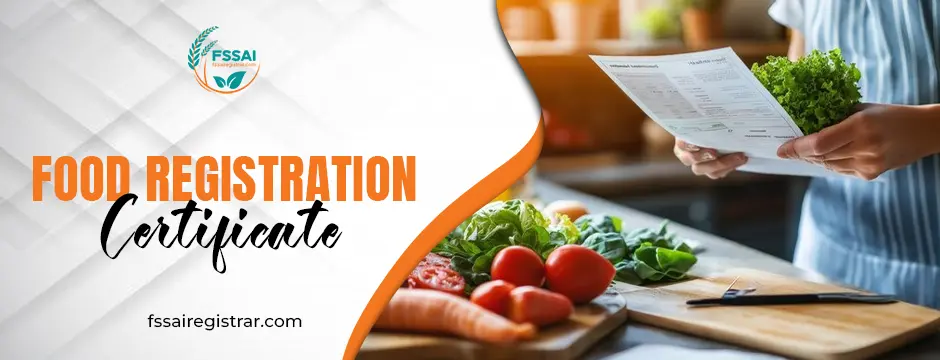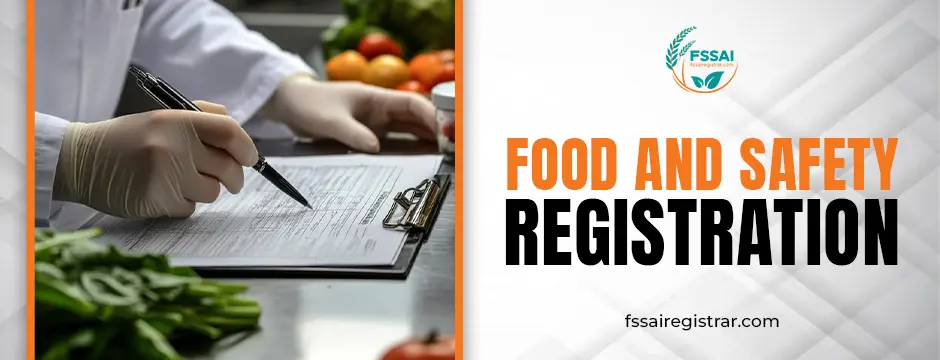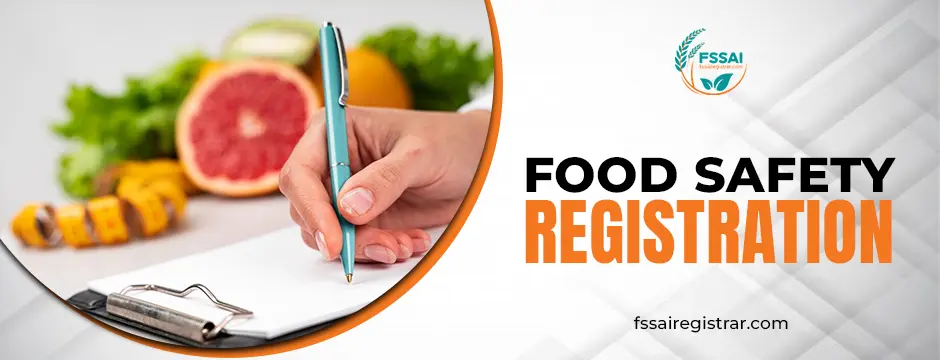The Role of Food and Safety Registration in Preventing Food Fraud
Food plays an important part in our everyday lives. People have the perception that the food they buy is safe, healthy, and genuine. Unfortunately, the reality is that food fraud has been a common occurrence around the world. From
product manipulation to the use of low-quality ingredients, fraud can impact consumers and businesses directly.
Food safety registration is one of the strongest tools to combat this problem.
This is not merely a legal process. It is a system to establish trust and to safeguard the public. When food businesses register, they undertake to operate within strict regulations. These regulations ensure that food quality is assured and fraud is avoided.
In this blog, we shall be looking at how registration prevents food fraud, why it is important, and what it does for all concerned.
What is Food and Safety Registration?
Food and safety registration is a process that all food businesses are required to utilise before the start of operations. It is a process where the government records information regarding the business. After the registration, the business is authorized to produce, sell, or distribute food.
The main purpose is to ensure that there are only authentic and licensed businesses that deal with food. That way, it becomes simple for the authorities to track all food operators within the market.
Knowing Food Fraud
When learning about how registration fights against fraud, one should get familiar with what food fraud is. Food fraud takes place when food is deliberately mislabeled for the purpose of gaining money. The following are some examples:
- Selling inexpensive commodities as precious ones
- Mislabeling expired products with fresh dates
- Mixing adulterated products to increase quantity
- Purporting counterfeit products as genuine brands
These are not just consumer-fraudulent acts; they also compromise the health of consumers. At worst, food fraud has caused outbreaks of serious illness.
Food Fraud Prevention through Food and Safety Registration
1. Tracking and Monitoring Businesses
When companies register, they give full information regarding ownership, location, and operations. It is simple for regulators to monitor them. No fake companies can escape the system once registered.
2. Legal Responsibility
Registration involves legal responsibility. If a company operates fraudulently, officials can take severe action. This includes heavy fines, cancellation of licenses, or closing down the business. Knowing such consequences deters most from committing fraud.
3. Regular Inspections
Registered businesses are checked. Governments can check premises to confirm hygiene, safety, and quality. Surprise checks reduce the chances of fraud since companies know they can be checked at any time.
4. Transparency for the Consumer
Whenever a food company displays its food registration certificate, consumers are assured. They know that the company has been licensed and regulated. Fraudulent owners do not have such certificates.

5. Standardisation of Food Practice
Registration verifies that companies adhere to food standards. These consist of safe storage, handling, and processing. With the help of keeping things standardised, it is hard for companies to cheat.
6. Record of Supply Chains
Registration also assists in tracking supply chains. In case an issue of fraud comes up, authorities can track the source immediately. This minimizes the effect of fraud and makes it impossible for the fraud to spread further.
Advantages of Food and Safety Registration for Consumers
Safety of Health
Consumers are less likely to purchase harmful or fake products. The system ensures food safety.
Trust in the Market
People trust restaurants and companies that offer proof of registration. It ensures that the food is genuine.
Easy Complaints
When fraud is being committed, consumers can complain to the registered business. Government authorities possess the information to act on time.
Advantages for Businesses
Legal Protection
Registered companies are legally within the book. They avoid harsh punishments and build long-term trust.
Brand Credibility
A good registration makes a good reputation. Clients prefer transparent companies.
Market Opportunities
Most online sites and suppliers only want to deal with registered companies. Registration opens up bigger markets.
Fewer Chances of Fraud Allegations
Clean records protect genuine companies from fraud allegations.
Role of Technology in Registration
Registration systems today are turning online. This accelerates the process and opens it up. Online records are more difficult to forge, and they improve tracing. QR codes on registration certificates are also being utilised by some governments. Consumers can scan them to check authenticity.
This use of technology removes the potential for fraud even further. It gives consumers access to authentic information firsthand.
Challenges in Preventing Food Fraud
Even though registration works, it is not flawless. Some of the issues are:
Unregistered operators: Some companies try not to register at all.
Corruption: Regulations are sometimes bypassed illegally in exceptional cases.
Awareness: The majority of small companies are unaware of how important food safety registration is.
Enforcement: Authorities are not always equipped with enough resources for inspections.
Despite all of these issues, registration remains one of the greatest tools for fighting fraud. With enhanced enforcement and awareness, it can make an even larger difference.
Global Perspective
Food fraud is not only an issue in any country. It is international. Foreign markets are founded on trust and safety. Countries with good registration systems are better able to avoid fraud. This helps them in terms of their food exports as well because global consumers prefer to do business with safe and certified suppliers.
Why Every Food Business Must Register
All food enterprises, large or small, have a responsibility to their customers. Registration is the initial step toward fulfilling that duty. Registration ensures compliance, creates confidence, and protects businesses and consumers against fraud.
Registration extends even to home-based sellers of food, such as bakers or food takeout operators on the Internet. This creates balance in the market. All participants follow the same rules, making it harder for fraud to exist.
Conclusion
Food fraud is both a health and trust risk, and it is best fought through strong systems that are capable of holding the businesses to account. Food and safety registration is an important part of this. It ensures that there are only genuine businesses, that they are controlled, and that people have confidence in the food that they eat.

Through compliance with appropriate registration, firms not only keep law and order but also show allegiance to quality and safety. Consumers attain confidence and protection in due course.
In the times ahead, with developing technology and increasing awareness, registration will further solidify itself. It will continue to be one of the most effective steps to deter food fraud and protect public health.
Protect your business and build customer trust with proper food and safety registration at Fssai Registrar!
- FSSAI Registration
- Get fssai license in 1 hour
- Significance Of Fssai Registration For Repackers In Food Industry
- Renewing and upgrading your fssai license a comprehensive guide
- Food safety guide for food handlers food licensing registration
- FSSAI Central License Fees Guide for Food Businesses
- Choose the Right Food Business Idea for Your Budget
- The Role of Food and Safety Registration in Preventing Food Fraud
- Get Your FSSAI License in 1 Hour: A Quick Step by Step Guide
- Significance of FSSAI Registration for Repackers in Food Industry
- Renewing and Upgrading Your FSSAI License
